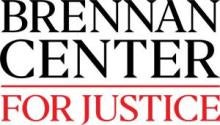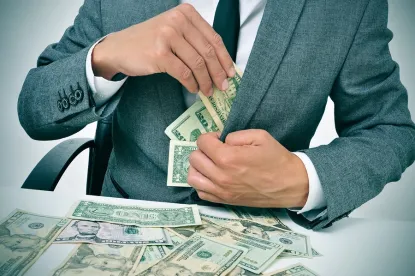The old saying goes, that “when you have a hammer, everything looks like a nail.” And as a campaign finance lawyer, I have to remind myself that not every story is a money in politics story. But the more I look at the 2016 election and what transpired, campaign finance is at the heart of the scandal.
To wit, this January, McClatchy reported that the FBI is allegedly investigating whether a Russian banker named Aleksander Torshin (who’s also wanted on criminal charges in Spain for unrelated matters) may have funneled money into the National Rifle Association (NRA) for the benefit of the candidacy of Donald Trump in 2016. At this point, all this is just a press report. We don’t have confirmation of this investigation.
In March, Politico reported that the Federal Election Commission (FEC) is investigating whether there really was any Russian money running through the NRA in the 2016 presidential election. This comes on the heels of Oregon Democratic Senator Ron Wyden asking similar questions to the NRA.
Illegal Political Sources
But why would this be so significant if the story of rubles flowing through the NRA is correct? For one, such spending by a foreigner in an American election is totally illegal under American law. Indeed foreign electoral spending has been barred since 1966 amendments to the Foreign Agents Registration Act (FARA). And with a Special Counsel actively indicting people for their roles in the 2016 election, this could become part of that criminal probe.
We Were Warned
Second, if the NRA-Russia-Trump nexus is borne out by the facts, then it will vindicate warnings from Supreme Court Justices and campaign finance reformers who said inviting secretive corporate money into our politics would provide cover for illegal foreign spending in American elections.
This caution was part of Justice John Paul Stevens’ dissent in Citizens United. He was leery of the possibility that inviting corporations into U.S. elections could invite foreign influence. As he wrote, “[u]nlike voters in U.S. elections, corporations may be foreign controlled.” He also noted the absurdity of giving equal protection to foreign speakers in this context: it would be like “accord[ing] the propaganda broadcasts to our troops by ‘Tokyo Rose’ during World War II the same protection as speech by Allied commanders.”
This warning that dark money could hide foreign money was particularly pronounced from transparency advocates among campaign finance reformers. In 2016, the FEC tried to promulgate new rules to clarify reporting requirements. But the FEC deadlocked and no new rules were finalized.
Without Clear Transparency Rules Dark Money Flourished
In the absence of new clear rules from the FEC, or Congress for that matter, dark money has increased. As I described in the law review article Dark Money As a Political Sovereignty Problem, since 2010, over $800 million in “dark money” has been spent in federal elections. Because of the dark money problem, often we don’t know what we don’t know about corporate money in politics—including whether it is from an illegal foreign source.
Dark Money Spent in Recent Election Cycles
| Year | Amount Spent |
| 2016 | $183.8 mil |
| 2014 | $177.7 mil |
| 2012 | $308.6 mil |
| 2010 | $135.6 mil |
Source OpenSecrets.org
The growth of dark money is often blamed on the Supreme Court’s 2010 decision, Citizens United v. FEC. Paradoxically, Citizens United upheld the constitutionality of disclosure of the underlying sources of money in politics by a vote of 8 to 1. But regulators did not take up the Supreme Court’s open invitation to improve disclosure laws after Citizens United, thereby allowing dark money to metastasize like a cancer on our democracy.
How Dark Money Gets Dark
Here’s how dark political money works. Say you have a company that wants to exercise its Citizens United rights, but it doesn’t want to tell the public. That company gives the money to a politically active 501(c)(4) social welfare organization or 501(c)(6) trade association. Then that nonprofit buys political ads in a federal election. The FEC doesn’t require the nonprofit to reveal where it got the money. Even if the company is publicly traded, there is no SEC rule that requires the company to tell investors that they are spending money on politics. For even more secrecy, money can also be routed through a shell corporation like an LLC to make tracing the money even more difficult.
The Allegation
The reporting by McClatchy (and others) alleges that NRA’s Institute for Legislative Action (ILA), a 501(c)(4) arm of the NRA, that does not disclose its donors, received money from the Russian banker Torshin. We don’t know if that happened.
We do know how the NRA spent its money. In 2016, the NRA expended $54,398,558 in outside political spending. The NRA spent $31 million of that money to support Mr. Trump’s candidacy.
Growing NRA Spending
| Year | Amount Spent |
| 2016 | $54,398,558 |
| 2014 | $27,024,898 |
| 2012 | $19,767,043 |
Source OpenSecrets.org
It is outlandish to think that the NRA would wittingly or unwittingly violate American campaign finance law? At this point, we don’t know if they have done anything wrong. However, the NRA has a long history of fighting campaign finance regulations. In 2010 when the Congress was on the verge of passing the DISCLOSE Act which would have brought transparency to money in politics post-Citizens United, lobbyists for the NRA got a legislative carve out so that new disclosure would not apply to them.
The NRA was also center stage in litigation against the last big federal campaign law, the Bipartisan Campaign Reform Act (better known as BRCA or McCain-Feingold). In 2002, the NRA and one its PACs, National Rifle Association Political Victory Fund were plaintiffs challenging the constitutionality of BRCA. This case was consolidated into the case that became McConnell v. FEC, a case that ended up upholding the constitutionality of BRCA, including its campaign finance disclosure requirements. Moreover, in 2001 the NRA was held liable for campaign finance violations from the 1978 and 1982 elections.
Conclusion
Like so many aspects of the multiple investigations into what really happened in the 2016 election, the public has no idea what will ultimately be revealed. Reading the news has become like a live action spy novel. It is possible further investigation will only exonerate the NRA and the Russian banker. But one strain to keep an eye on is whether any foreign money helped elect a U.S. president. Did I mention that’s completely illegal?




 />i
/>i
